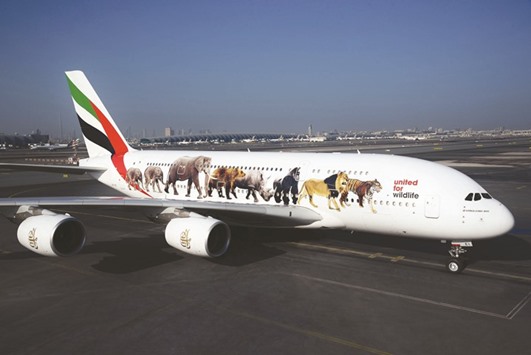The Emirates Group, comprising Emirates airline and dnata, has published the sixth annual environmental report outlining the Group’s environmental performance for the 2015-16 financial year.
The report, audited by PricewaterhouseCoopers, presents environmental performance data and environmental sustainability initiatives from a range of Group activities covering airline operations, dnata’s cargo and ground handling businesses and other commercial activities on the ground such as engineering and catering.
In addition to presenting the overall environmental impact, the report aims to identify and feature best practices from across the Group’s workforce, according to a press statement.
“Working together with our partners across the industry, we will continue to invest in technologies and processes that enable us to deliver our services effectively, efficiently and with the minimum environmental impact,” said Sheikh Ahmed bin Saeed al-Maktoum, chairman and chief executive, Emirates airline and Group.
Airline operations constitute the main environmental impact of the Emirates Group. “A modern wide-body fleet not only delivers environmental benefits with regard to lower engine and noise emissions but also helps offer customers a higher level of comfort,” the statement noted. Also, Emirates’ flight operations specialists continued to work with air traffic management providers and airports around the world to deliver more efficient flight routings and operational procedures to help reduce flight times, fuel consumption and emissions.
One of the most significant developments of the year was the installation of a one megawatt array of solar photovoltaic panels at the Emirates Engine Maintenance Centre. The array is made up of 2,990 photovoltaic panels, which are expected to generate over 1,800 megawatt-hours of electricity every year, helping save around 800 tonnes in carbon dioxide emissions.
Other initiatives included the replacement of lights used for aircraft cabin maintenance with energy-saving LED lights and a refurbishment of Emirates’ London office with a focus on energy efficiency, leading to an overall reduction of 60% in electricity consumption.
dnata’s cargo operations in Brisbane and Sydney achieved a reduction in power consumption through energy efficiency best practices and by upgrading their lighting systems.
Besides supporting ongoing wildlife conservation efforts in Dubai and Australia, Emirates partnered with United for Wildlife to raise awareness about the devastating effects that illegal trade in wildlife is having on the survival of most endangered animals.

United for Wildlife Emirates A380.
